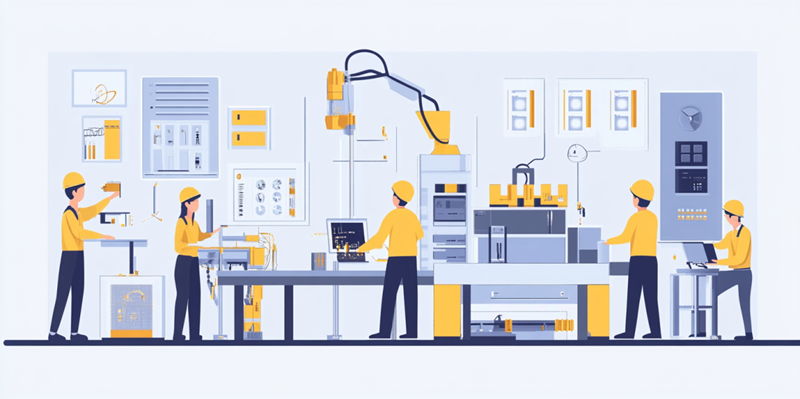Imagine a world where machines perform mundane tasks with precise accuracy, allowing humans to focus on creative and strategic endeavors; this vision is rapidly becoming a reality due to the transformative impact of intelligent automation (IA) on global employment. The rapid advancements in AI and robotics are not only reshaping job markets and skill sets but also opening new professional opportunities across various sectors.
Integration of AI and Automation
Intelligent automation combines machine learning, robotic process automation (RPA), natural language processing (NLP), and computer vision to significantly enhance precision and decision-making within businesses. This new paradigm embeds automation into manufacturing, service, and knowledge industries, fostering substantial improvements in operational processes, driving operational efficiency, and setting new standards in various sectors.
Industry 4.0: Advancements in Manufacturing
In manufacturing, often referred to as Industry 4.0, the collaboration between human labor and robotics has led to the automation of repetitive tasks and AI-driven predictive maintenance, thereby boosting production efficiency. This evolution necessitates a shift in workforce skills, particularly in areas such as robotics programming, data analysis, and technical proficiency. Workers must adapt to these advanced technologies to ensure seamless integration between machine capabilities and human expertise, ultimately enhancing productivity.
Transformations in the Service Sector
The service sector also experiences significant transformations due to IA. In financial services and customer interactions, automation through AI chatbots and automated trading has led to enhanced operational efficiency and customer satisfaction. This shift emphasizes the growing need for expertise in AI governance, algorithm refinement, and customer-focused solution design. Balancing automated precision with human insights is crucial to optimize performance while maintaining a personal touch in services, which is increasingly valuable in a tech-driven world.
White-Collar Automation
In white-collar sectors like legal, accounting, and journalism, automation handles data-intensive and routine tasks, shifting concerns to potential job displacement. However, there’s a consensus that AI will augment rather than replace human roles. The emphasis shifts to blending cognitive computing with human creativity, valuing strategic thinking and emotional intelligence. This approach leads to a collaborative future where technology complements human expertise, fostering innovation while preserving job relevance.
The Dual Nature of Job Displacement and Creation
A significant point discussed is the dual nature of job displacement and creation brought by intelligent automation. By 2030, up to 30% of tasks in 60% of occupations could be automated. However, new roles such as AI specialists, data scientists, and robotics engineers are expected to grow significantly. Predictions from the World Economic Forum suggest a rise in opportunities within technology and human-machine collaboration, balancing the shift in the job market and ensuring economic resilience.
Emerging Roles and Skills
Emerging roles and skills necessary for the future workforce include AI and Robotics Engineers, who will focus on advancing smart systems, developing machine learning models, and creating sophisticated robotics. There is also a rising demand for Data Science and Business Intelligence Analysts to derive strategic insights from massive data volumes. Moreover, Human-Machine Interaction Designers gain importance to ensure effective, user-centric interfaces and workflows for seamless human-AI collaboration, highlighting an urgent need for interdisciplinary expertise.
Ethical and Societal Considerations
The article also addresses ethical and societal considerations such as algorithmic bias and economic inequality, underscoring the importance of fairness, transparency, and accountability in AI systems. New roles like AI ethicists and algorithmic auditors are essential for maintaining ethical standards, promoting trust, and ensuring responsible technological progress. Addressing these issues is crucial to leveraging the full potential of intelligent automation while safeguarding societal values.
Reskilling and Lifelong Learning
Imagine a world where machines handle routine tasks with pinpoint accuracy, allowing humans to dedicate their energy to creative and strategic pursuits; this scenario is swiftly becoming a reality thanks to the transformative power of intelligent automation (IA) in the global workforce. The swift progress in AI and robotics isn’t just altering job markets and the needed skill sets; it’s also generating new career opportunities across a range of industries.
As AI technology advances, machines increasingly take over repetitive and monotonous tasks, freeing up humans to focus on innovation, problem-solving, and strategic planning. This shift is not merely about replacing human labor but is more about augmenting our abilities, leading to higher efficiency, productivity, and job satisfaction. New sectors are emerging as a result of these technological advancements, requiring fresh skills and providing diverse job opportunities.
Moreover, the integration of IA in various fields, from healthcare to finance, is also driving demand for new specializations, ensuring that the future job landscape offers exciting and varied options for the workforce, paving the way for a brighter, more innovative future.

